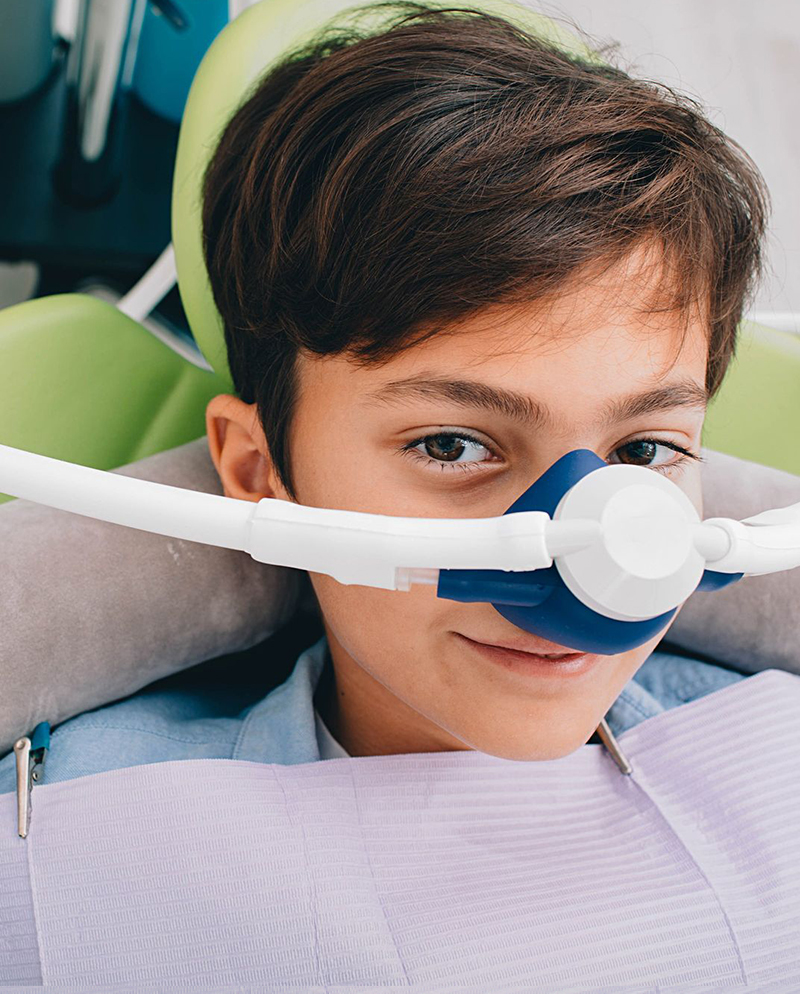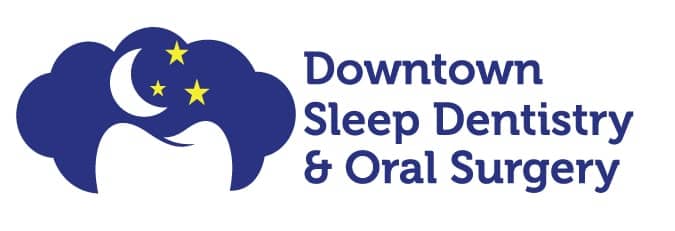Dental Sedation & Anaesthesia in Hamilton
Whether you are fearful or have anxiety about visiting the dentist, have pain or
require extensive dental work, Downtown Sleep Dentistry and Oral Surgery can give you the peace of mind you need to get the treatment you deserve.
Levels of dental sedation and anaesthesia
Downtown Sleep Dentistry and Oral Surgery offers multiple levels of in-office sedation and anaesthesia options for everything from routine cleanings to surgical procedures.
Nitrous Oxide
Nitrous oxide is a conscious sedative, which is administered by breathing in a mixture with oxygen through the nose. This is effective in allowing our patients with mild anxiety to stay calm during treatment.
With nitrous oxide, you will still be able to communicate with us. Nitrous is often appropriate for less invasive or shorter appointments. Once your appointment is finished, you will be given oxygen to help remove any lingering gas from your system.
The calming effects of the nitrous wear off almost as soon as it is turned off, with little to no side effects. One of the advantages of nitrous oxide is that you can attend your appointment unescorted, and can drive home or take public transportation as the effects wear off completely before you leave the office.

Oral Sedation
For those looking for a little bit more of a sedation effect than nitrous oxide, but don’t want to be fully asleep, our downtown Hamilton dental specialists offer oral sedation. This is usually administered by drink or pill, or can be combined with the calming effects of nitrous oxide.
Though still not fully asleep, oral sedation will put those with mild to moderate dental anxiety in a calm and peaceful state-of-mind. This will allow your dental work to be completed while you stay relaxed. You will require a responsible adult to drive you to and from your appointment, and to stay with you for the remainder of the day.
Deep Sedation and General Anaesthesia
Most of our Hamilton and area patients prefer to be asleep for their dental care, for which deep sedation is well suited. From the patient’s perspective, the entire procedure is over in the blink of an eye.
Deep sedation is commonly achieved through an intravenous (IV). Deep sedation is what adults experience to allow for colonoscopy procedures to be successful and comfortable. Deep sedation is extremely predictable and is safe for many of our patients. This same technique and medications can be used to treat adults and children alike for restorative dental procedures and for oral and maxillofacial surgery.
For children, deep sedation is the most common and effective option. This allows our specialists the opportunity to provide the best possible outcome. This is a very predictable and safe source of sedation and is most commonly used for younger, high-anxiety, fearful or uncooperative patients or for those who require extensive or technique sensitive dental work. All of our specialists are highly trained and proficient in working with children, so that you can feel confident when your child is in our care.
The Royal College of Dental Surgeons of Ontario only permits dentists who completed formal multi-year residency training and education in anaesthesia to practice this type of anesthesia. During your treatment, in addition to your always present anaesthesia provider, our nurses also monitor you ensuring safety. After completion of your treatment, dedicated recovery room nurses monitor all patients in our recovery unit. Our nursing staff are trained and current in Advanced Cardiac Life Support (ACLS) and Paediatric Advanced Life Support (PALS). We are fully equipped, trained and prepared for the remote possibility of an emergency.
Our facility and equipment are routinely inspected by our regulatory body and exceed the Canadian Academy of Dental Anaesthesia guideline requirements.
Next steps?
Downtown Sleep Dentistry and Oral Surgery is one of the few offices that offers all types of dentistry, including cleanings with sedation for adults. Some options even allow adults to drive to the appointment, be lightly sedated for a cleaning and then go home on their own. Alternatively, adults or children can be completely asleep for their treatment – the choice is yours. Call our office today at 905-528-8959 to schedule a consultation appointment. At this appointment your doctor will speak with you about the best choice of sedation for you, will take a medical history, perform a physical exam and explain all options. Anaesthesia safety will also be discussed including all measures we take to ensure your safety during your appointment.Call: 905.528.8959
Working Hours
Monday – Friday from
8 a.m. – 3:30 p.m.
Consultation
We are here to answer any and all questions you may have regarding your sedation dentistry appointment.


